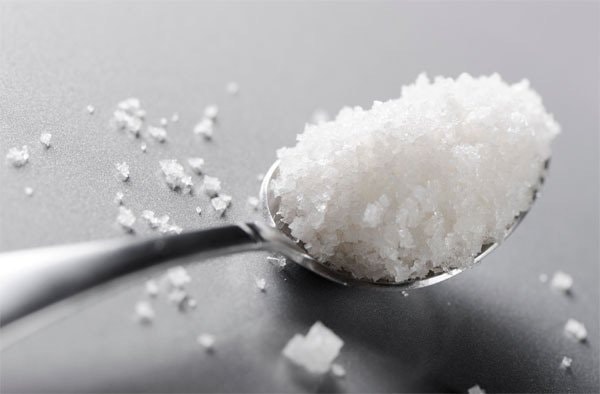Alarming, Vietnam returns to the top of the world's most severe iodine deficiency
Iodine deficiency in Vietnam is at an alarming level, and is among the 19 countries with the most severe iodine deficiency in the world.
Professor Dr. Le Danh Tuyen, Director of the Institute of Nutrition, warned that after 13 years, the iodine deficiency situation in Vietnam is very serious.
According to the investigation results of the Central Endocrinology Hospital in 2013-2014, the rate of goiter in children aged 8-10 years old was up to nearly 10%, the median urinary iodine level was 8.4mcg/dl. This is the lowest level in the past 10 years.
Meanwhile, in 2005, the goiter rate in children fell below 5%, and the median urinary iodine level was greater than or equal to 10mcg/dl.
|
| Iodine deficiency is alarming in our country. |
At that time, the coverage of iodized salt that met disease prevention standards in Hanoi was nearly 100%, and nationwide, the coverage of iodized salt was up to 93% of the population.
However, just 3-4 years later, the national iodized salt coverage was only 30-40%.
The reason is that in the period before 2005, Vietnam had a national target program for iodine supplementation as mandatory. As soon as iodine deficiency was eliminated, this regulation was abolished, causing a sudden drop in coverage.
Another study by the Institute of Nutrition gave a startling figure when only 6% of respondents used iodized salt as the only salty seasoning, the remaining 75% used salty seasoning from fish sauce, soy sauce, seasoning powder...
75% of salt intake is mainly through processed foods, the remaining 15% through direct consumption. Meanwhile, naturally grown foods have negligible iodine content, unable to meet the body's needs.
Currently, the global iodine network ranks Vietnam among the 19 countries in the world with the most serious iodine deficiency.
“The Global Network for Iodine Nutrition recommends that our country must require iodine to be mixed into salt for direct consumption, salt used in processing all types of food, including salt used for livestock farming,” the Director of the Institute of Nutrition emphasized.
In fact, since 2016, the Government has issued a decree on micronutrient supplementation in food, which requires iodine supplementation in food. This regulation took effect from March 15, 2017; however, to date, most businesses have not yet implemented it.
According to Unicef, iodine is a micronutrient that is essential for the proper functioning of the thyroid gland. When iodine intake falls below the recommended level, the thyroid gland may no longer be able to synthesize enough hormones, causing effects on the developing brain of the newborn, making the child less intelligent, pregnant women are prone to miscarriage, stillbirth, and normal people have goiter.
The recommended iodine requirement for children is 90-120 mcg/day, and for adults is 150 mcg. Iodine deficiency disorders can be completely prevented by supplementing daily meals. In addition to iodized salt, foods rich in iodine include sea fish, seaweed, amaranth, watercress, algae, etc.

